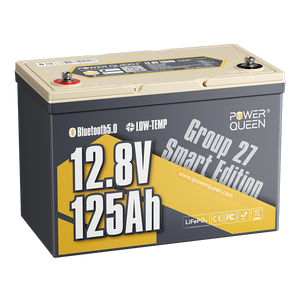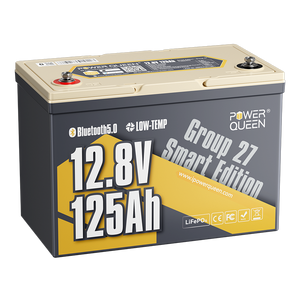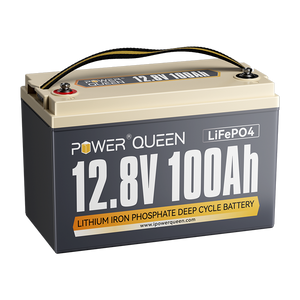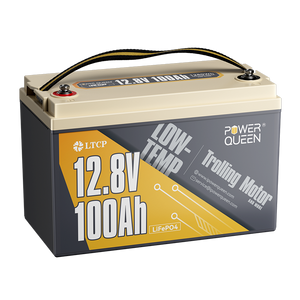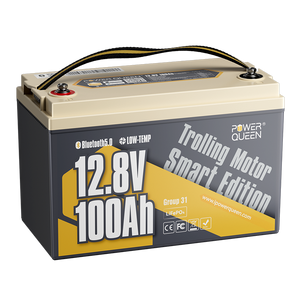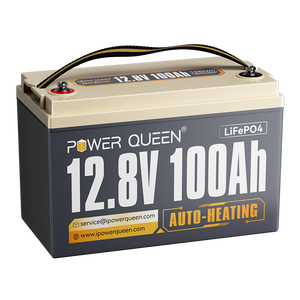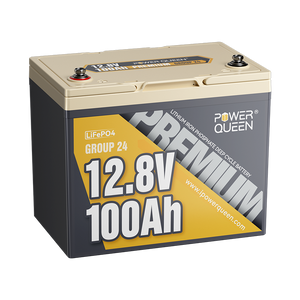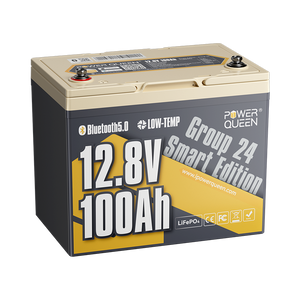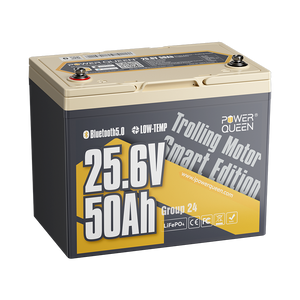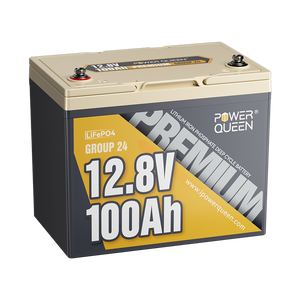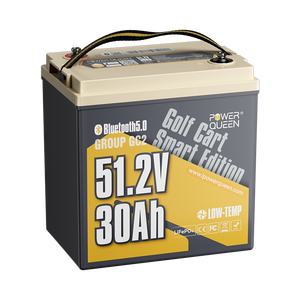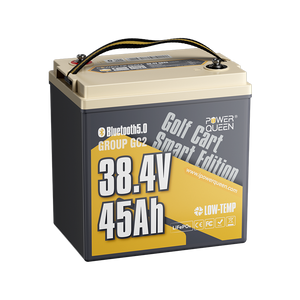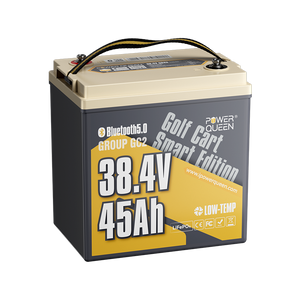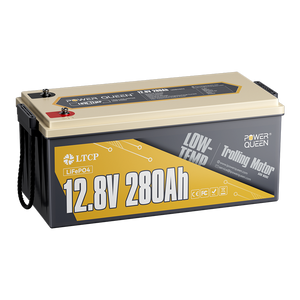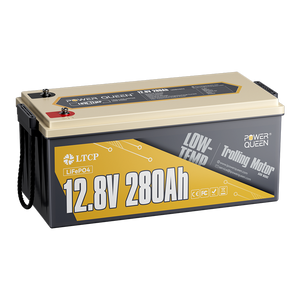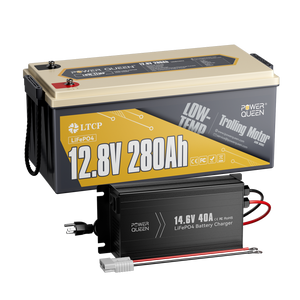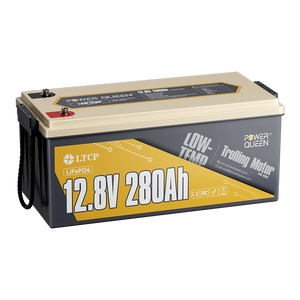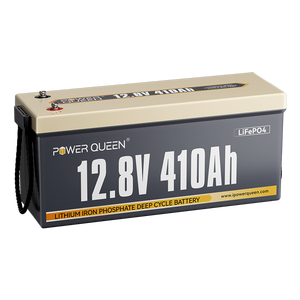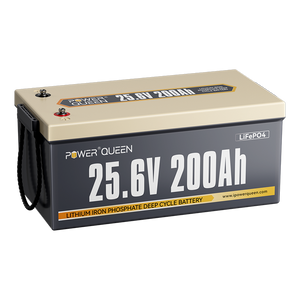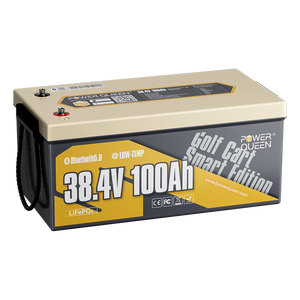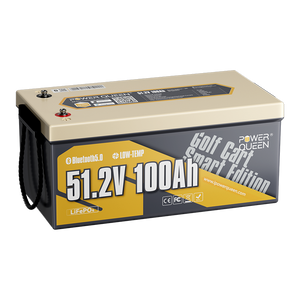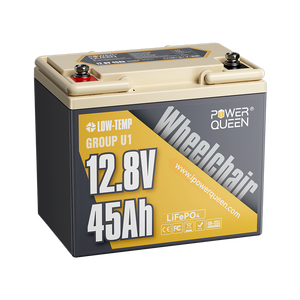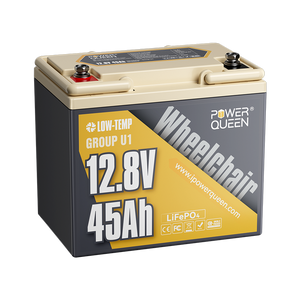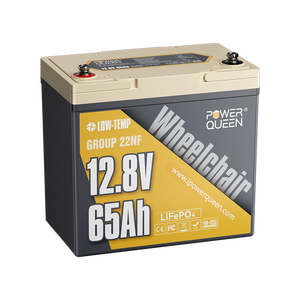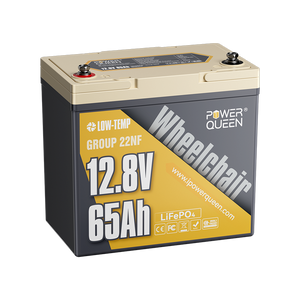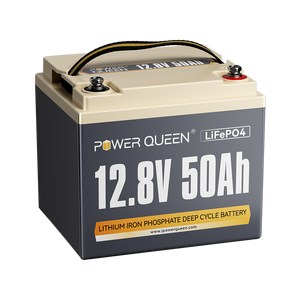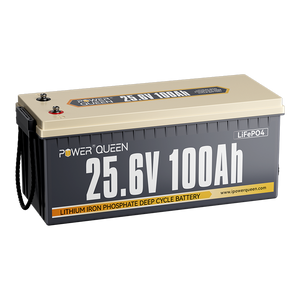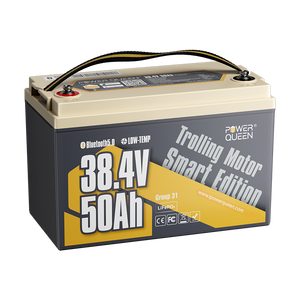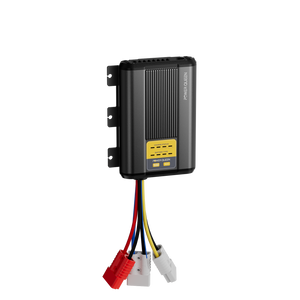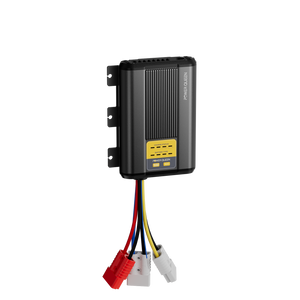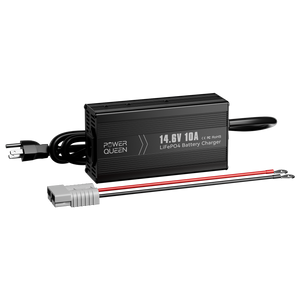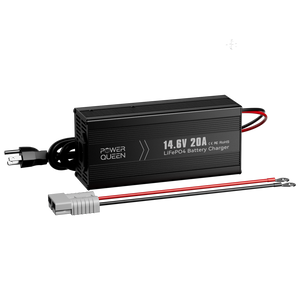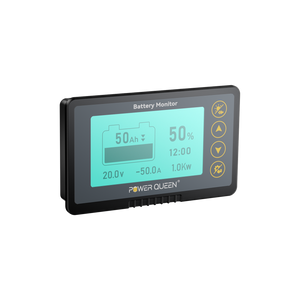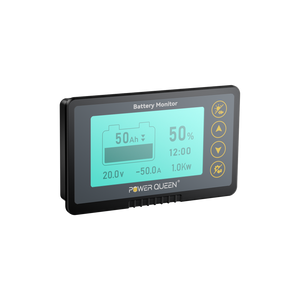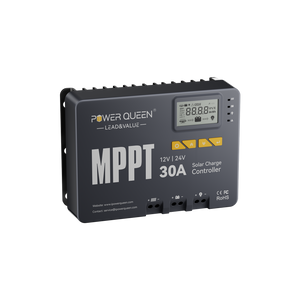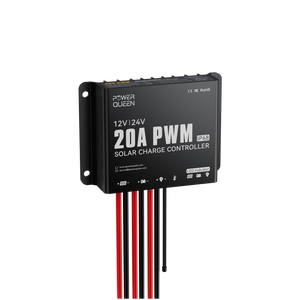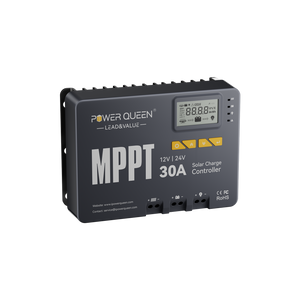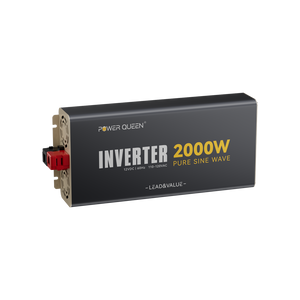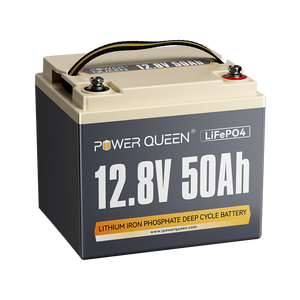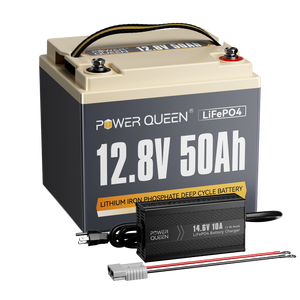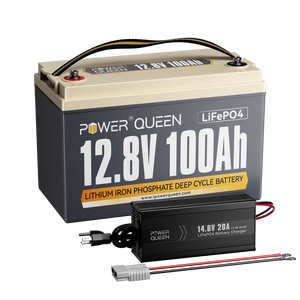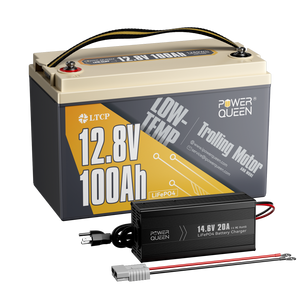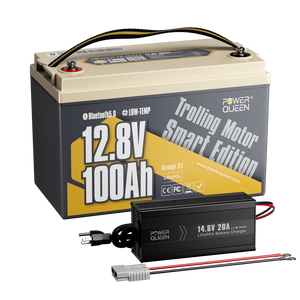How Long Will a 100Ah Battery Last?
If you are considering buying a 100Ah battery, you may wonder how long it will last. It is important to know what factors affect battery life. This guide explains how battery capacity and usage habits affect how long your 100Ah battery will last. It will help you manage your power needs better.
Table of Content
- Part 1. What Does 100Ah Mean for a Battery?
- Part 2. How Long Will a 100Ah Battery Last Under Different Loads?
- Part 3. Factors That Impact the Lifespan of a 100Ah Battery
- Part 4. Comparing Battery Types and Lifespan
- Part 5. How to Maximize the Lifespan of Your 100Ah Battery
- Part 6. Conclusion
Part 1. What Does 100Ah Mean for a Battery?
Amp-hours (Ah) measure the amount of electrical charge a battery can hold and supply. A 100Ah battery means it can deliver 100 amps for one hour, or 10 amps for 10 hours. This capacity shows how much energy the battery can hold. It also tells you how long it can power a device before it needs to be recharged.
Power Queen 12V 100Ah Group 24 LiFePO4 battery is a top-performing, long-lasting lithium battery that serves as an excellent replacement for lead-acid batteries. It’s 2/3 lighter, 1/4 smaller, and offers twice the energy of a 12V 100Ah lead-acid battery, making it ideal for various applications, including RVs.
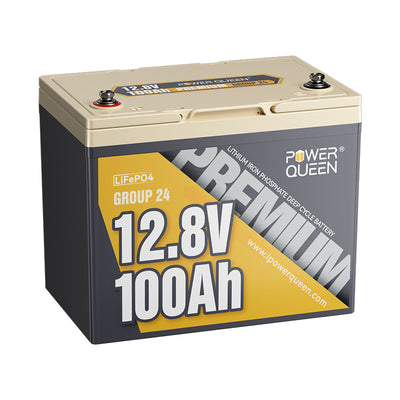

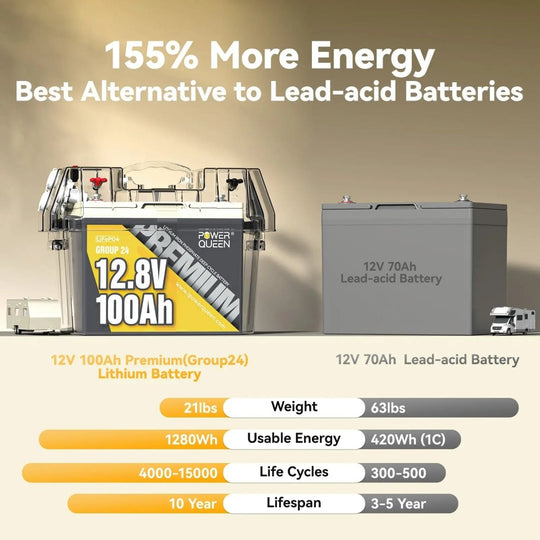
Part 2. How Long Will a 100Ah Battery Last Under Different Loads?
Calculating Battery Life Based on Load
A simple formula can estimate how long your 100Ah battery will last:
Battery Life (hours) = Battery Capacity (Ah) ÷ Device Current Draw (amps)
For example:
- If your device draws 10 amps, your 100Ah battery will last approximately 10 hours (100Ah ÷ 10A = 10 hours).
- If the device draws 5 amps, the same battery will last about 20 hours (100Ah ÷ 5A = 20 hours).
Part 3. Factors That Impact the Lifespan of a 100Ah Battery
Depth of Discharge (DOD)
Frequently draining a 100Ah battery to low levels before recharging can significantly shorten its lifespan. Ideally, keep the charge above 20% to help preserve battery health and prolong its overall performance.
Temperature
Extreme temperatures—whether hot or cold—can degrade a battery more quickly. High heat speeds up chemical reactions in the battery. Cold temperatures lower its capacity. Both can shorten the battery's lifespan if not managed well.
Charge/Discharge Rate
Rapid charging or discharging can stress the battery, leading to quicker degradation. Slow and steady charging is better for keeping the battery's capacity over time. It helps prevent wear on the internal parts.
Battery Chemistry
The type of battery (e.g., lithium-ion vs. lead-acid) plays a significant role in determining its lifespan. Lithium-ion batteries usually last longer and work better. In contrast, lead-acid batteries wear out faster and have shorter lifespans.
Load Characteristics
A consistent, moderate load on a 100Ah battery results in a longer lifespan. Frequent high-power draws or erratic load patterns can strain the battery, reducing its performance over time.
Storage Conditions
Storing the battery in high temperatures or keeping it fully charged for long periods can reduce its longevity. It's best to store the battery in a cool, dry place, ideally at around 50% charge, to maximize lifespan.
Battery Age and Maintenance
As a battery ages, its capacity naturally decreases. Regular maintenance, like cleaning terminals and checking electrolyte levels in lead-acid batteries, helps extend their life. This keeps the batteries working well.
Related Reading: [Full Guide] How Long Do Lithium Batteries Last?
Part 4. Comparing Battery Types and Lifespan
Lithium Batteries
Lithium batteries stand out for their long lifespan, often lasting up to 10 years. They offer high energy density, lightweight design, and can handle extreme temperatures. Lithium batteries have a slow self-discharge and many charge cycles. This makes them the best choice for smartphones, laptops, and electric vehicles.
Nickel-Metal Hydride (NiMH) Batteries
NiMH batteries are more affordable and eco-friendly but have a shorter lifespan compared to lithium batteries. They are often used in mobile phones and laptops. However, they wear out faster and hold less power. This makes them less reliable for long-term use.
Nickel-Cadmium Batteries
Nickel-cadmium batteries are known for their durability and long lifespan, but they are less commonly used today. Even though they are cheap at first, they are known to be toxic and hard to recycle. This makes them less appealing for today's uses.
Lead-Acid Batteries
Lead-acid batteries are widely used for larger power applications where weight isn’t a major concern. They are cost-effective but last much shorter. They usually last 3 to 5 years. In contrast, lithium batteries last up to 10 years.
Related Reading: Lead Acid vs Lithium Ion Battery: What's the Difference?
Lithium Iron Phosphate (LiFePO4) Batteries
LiFePO4 batteries from Power Queen are designed to provide enhanced safety, longevity, and reliability. Ideal for solar energy storage and electric vehicles, these batteries offer a longer lifespan and are a safe, stable power source. Though slightly heavier, they deliver exceptional performance and are built to withstand extreme conditions.
Related Reading: The Ultimate Guide to LiFePO4 Lithium Battery Voltage Charts
Part 5. How to Maximize the Lifespan of Your 100Ah Battery
Charge Within the Optimal Range
To extend the life of a 100Ah lithium battery, keep its charge level between 20% and 80%. Avoid fully charging or discharging it. Staying within this range reduces strain and helps maintain the battery’s health over time.
Minimize Deep Discharges
Lithium batteries are highly sensitive to deep discharges. Allowing the charge to drop below 20% regularly can shorten its lifespan. It’s best to recharge before the battery dips too low to maintain its longevity. Power Queen lithium battery has over 4000 cycles at 100% DOD, reducing energy consumption and environmental impact.
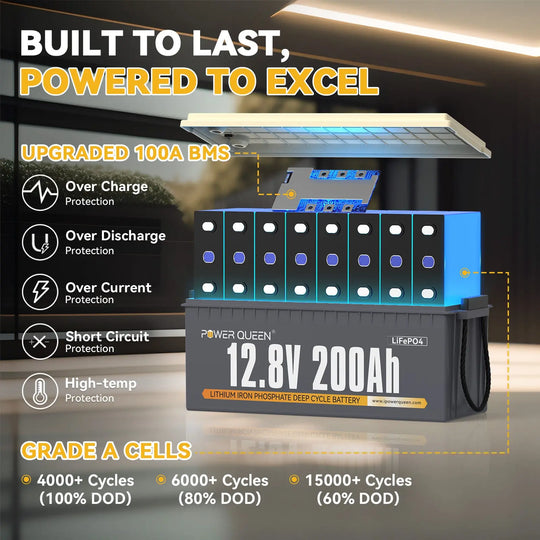
Temperature Control
Lithium batteries perform best in cool environments. Excessive heat can accelerate degradation, so avoid exposing the battery to extreme temperatures. Store and use it in a dry, moderate temperature to maximize its service life.
Use the Right Charger
Always use a charger recommended by the battery manufacturer. Using the right charger helps charge the battery properly. It prevents overcharging and undercharging, which can harm the battery's lifespan.
Monitor Battery Health
Regularly check the health status of your 100Ah lithium battery if your system allows it. Finding problems early, like too much discharge or temperature changes, can help you fix them. This way, you can protect the battery’s lifespan.
Storage Practices
If you’re storing the battery for a while, keep it at around 50% charge in a cool, dry place. Storing it fully charged or fully empty can cause serious damage. Try to find the best level for storage.
Part 6. Conclusion
The lifespan of a 100Ah battery depends on many factors. These factors include the type of battery, its usage, the depth of its discharge, and the environment it occupies. Generally, you can expect a 100Ah lithium battery to last anywhere from 5 to 10 years with proper care. By managing how you charge your battery, avoiding deep discharges, and storing it properly, you can extend its life. This will help ensure you have reliable power for many years.
